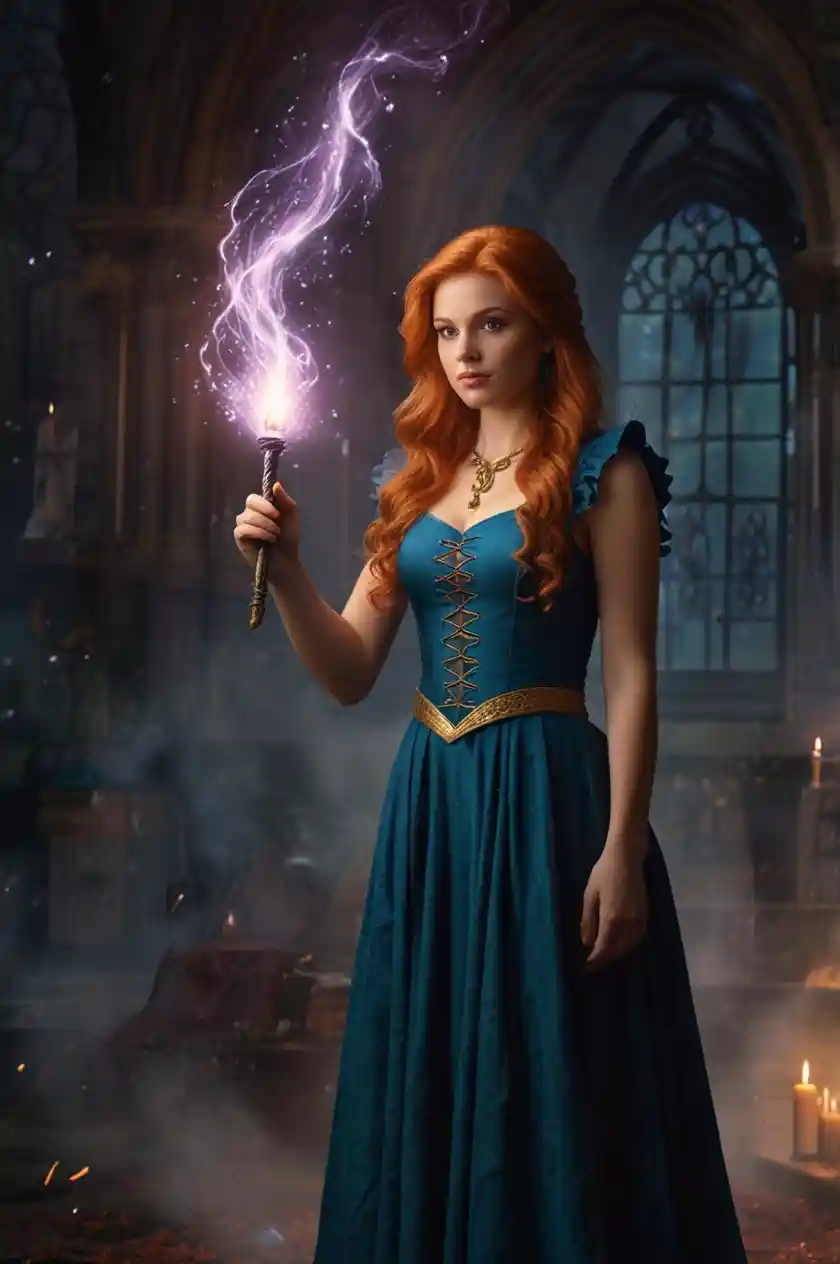Magic has always been a cornerstone of fantasy fiction, weaving its way through countless stories to create worlds that are both extraordinary and captivating. From ancient myths and folklore to modern novels and films, magic serves as a narrative tool that brings wonder, conflict, and meaning to the genre. But why is magic so integral to fantasy fiction? What role does it play in shaping the stories we love? Let’s take a deep dive into the enchanting world of magic in fantasy fiction.
The Essence of Magic in Fantasy Fiction
At its core, magic represents the impossible made possible. It allows authors to break the boundaries of reality and introduce elements that defy natural laws. This sense of wonder is what draws readers into fantastical worlds. Whether it’s wizards casting spells, enchanted artifacts, or supernatural creatures, magic is the lifeblood of fantasy fiction.
In many ways, magic serves as a metaphor for human imagination and creativity. It symbolizes the limitless potential of storytelling, where anything can happen. Through magic, authors can explore themes of power, morality, and the unknown in ways that resonate deeply with readers.
Types of Magic Systems in Fantasy
One of the most fascinating aspects of magic in fantasy fiction is its diversity. Magic systems can vary widely from one story to another, each with its own rules, limitations, and cultural significance. Broadly speaking, magic systems can be divided into two categories: hard magic and soft magic.
Hard Magic Systems
Hard magic systems are well-defined and operate under specific rules. These systems often have clear limitations and consequences for using magic. For example, Brandon Sanderson’s Mistborn series features a hard magic system based on Allomancy, where characters consume metals to gain specific abilities. Hard magic systems provide structure to a story and allow readers to understand how and why magic works.
Soft Magic Systems
Soft magic systems, on the other hand, are more mysterious and less defined. They often evoke a sense of wonder and unpredictability. J.R.R. Tolkien’s The Lord of the Rings is an excellent example of a soft magic system. Gandalf’s powers are never fully explained, adding an air of mystique to his character. Soft magic systems are ideal for creating an atmosphere of awe and uncertainty.
Hybrid Systems
Many fantasy stories blend hard and soft magic elements to create a balanced narrative. For instance, J.K. Rowling’s Harry Potter series features a structured system of spells and magical education while leaving room for mysterious and unexplained magical phenomena.
Thematic Roles of Magic
Magic in fantasy fiction isn’t just about flashy spells or epic battles; it often serves deeper thematic purposes. Here are some common roles that magic plays in fantasy stories:
1. A Tool for World-Building
Magic is a powerful tool for world-building, allowing authors to create unique settings that feel alive and immersive. In Le Guin’s Earthsea series, the concept of “true names” shapes the magical and cultural fabric of the world. Similarly, George R.R. Martin’s A Song of Ice and Fire uses magic sparingly but effectively to enhance the realism and complexity of its world.
2. A Mirror for Human Nature
Magic often reflects human desires, fears, and flaws. It can be a source of great power or devastating corruption. For example, the One Ring in The Lord of the Rings symbolizes the corrupting influence of power. In contrast, Harry Potter’s ability to wield magic responsibly highlights themes of courage and selflessness.
3. A Catalyst for Conflict
Magic frequently drives the central conflict in fantasy stories. Whether it’s an ancient prophecy, a cursed artifact, or a forbidden spell, magic often sets the stage for epic struggles between good and evil. In The Wheel of Time series by Robert Jordan, the cyclical nature of time and the use of the One Power create a rich tapestry of conflict and intrigue.
4. A Path to Self-Discovery
For many protagonists in fantasy fiction, learning to harness magic is a journey of self-discovery. It’s a metaphor for personal growth and overcoming adversity. Ged’s journey in A Wizard of Earthsea is a prime example, as he learns to accept his own flaws and embrace his true self through his magical training.
The Evolution of Magic in Fantasy Fiction
The role of magic in fantasy fiction has evolved over time, reflecting changes in cultural attitudes and storytelling trends. Early myths and legends often depicted magic as divine or supernatural forces beyond human comprehension. Over time, authors began to humanize magic, making it more accessible and relatable.
Modern fantasy fiction continues to push the boundaries of what magic can be. Authors experiment with innovative magic systems, blending science fiction elements or exploring non-Western magical traditions. This evolution keeps the genre fresh and exciting for new generations of readers.
FAQs About Magic in Fantasy Fiction
Q1: Why is magic so important in fantasy fiction?
Magic is important in fantasy fiction because it allows authors to create extraordinary worlds and explore complex themes in unique ways. It serves as a narrative tool that adds wonder, conflict, and depth to stories.
Q2: What makes a good magic system?
A good magic system is one that serves the story effectively. Whether it’s hard or soft, a well-designed magic system should have internal consistency and enhance the plot, characters, and themes.
Q3: Can a fantasy story work without magic?
Yes, a fantasy story can work without magic if it focuses on other fantastical elements like unique settings or mythical creatures. However, magic often adds an extra layer of intrigue and wonder to the genre.
Q4: How do authors create unique magic systems?
Authors create unique magic systems by combining imagination with logical rules or cultural influences. They often draw inspiration from mythology, science, or real-world traditions to craft something original.
Q5: What are some examples of non-traditional magic systems?
Non-traditional magic systems include those based on music (The Name of the Wind by Patrick Rothfuss), emotions (The Broken Earth trilogy by N.K. Jemisin), or even mathematics (The Rithmatist by Brandon Sanderson). These innovative approaches challenge conventional ideas about magic.
Conclusion
The role of magic in fantasy fiction is as multifaceted as the genre itself. It’s a tool for world-building, a mirror for human nature, a catalyst for conflict, and a path to self-discovery. Whether it’s governed by strict rules or shrouded in mystery, magic continues to captivate readers and transport them to realms beyond their wildest dreams.
As fantasy fiction evolves, so too does its portrayal of magic. From ancient myths to modern masterpieces, the possibilities are endless—and that’s what makes this genre so magical.



